Alireza Roshan-Ghias
Exploring Heterogeneous Metadata for Video Recommendation with Two-tower Model
Sep 22, 2021
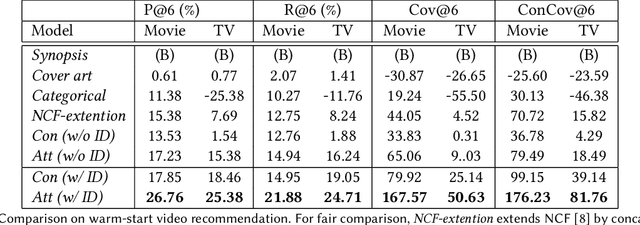
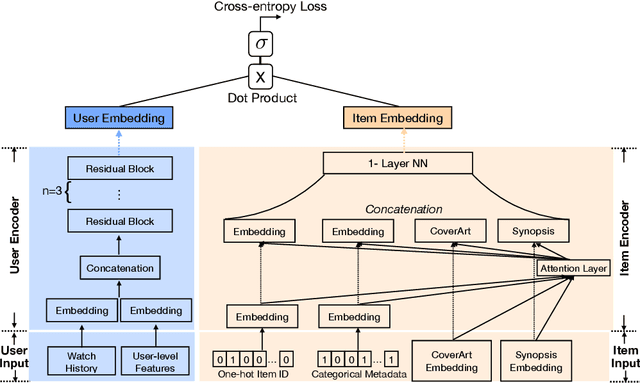

Abstract:Online video services acquire new content on a daily basis to increase engagement, and improve the user experience. Traditional recommender systems solely rely on watch history, delaying the recommendation of newly added titles to the right customer. However, one can use the metadata information of a cold-start title to bootstrap the personalization. In this work, we propose to adopt a two-tower model, in which one tower is to learn the user representation based on their watch history, and the other tower is to learn the effective representations for titles using metadata. The contribution of this work can be summarized as: (1) we show the feasibility of using two-tower model for recommendations and conduct a series of offline experiments to show its performance for cold-start titles; (2) we explore different types of metadata (categorical features, text description, cover-art image) and an attention layer to fuse them; (3) with our Amazon proprietary data, we show that the attention layer can assign weights adaptively to different metadata with improved recommendation for warm- and cold-start items.
Personalized Query Rewriting in Conversational AI Agents
Nov 09, 2020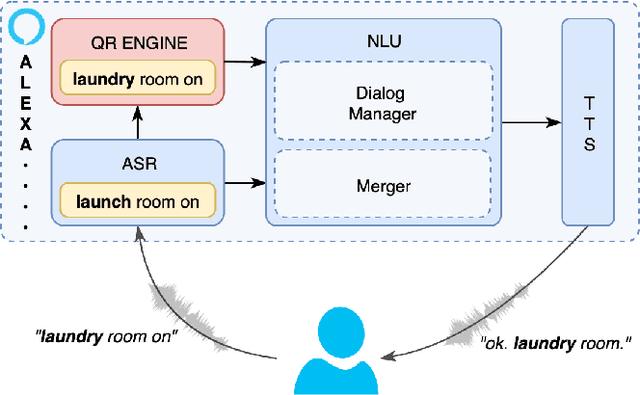

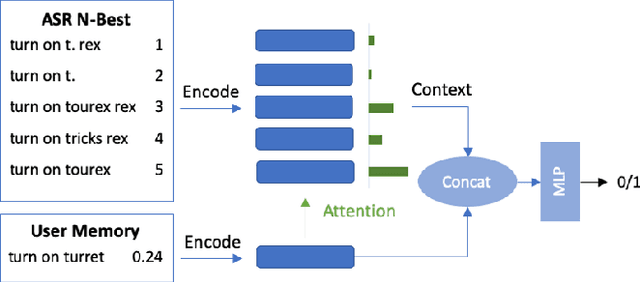
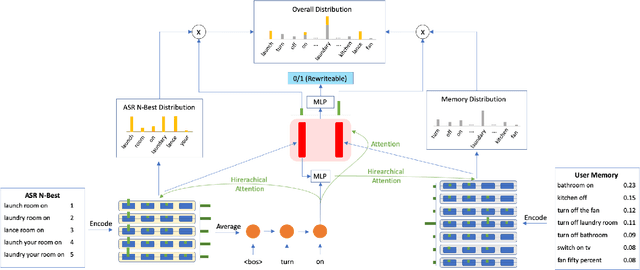
Abstract:Spoken language understanding (SLU) systems in conversational AI agents often experience errors in the form of misrecognitions by automatic speech recognition (ASR) or semantic gaps in natural language understanding (NLU). These errors easily translate to user frustrations, particularly so in recurrent events e.g. regularly toggling an appliance, calling a frequent contact, etc. In this work, we propose a query rewriting approach by leveraging users' historically successful interactions as a form of memory. We present a neural retrieval model and a pointer-generator network with hierarchical attention and show that they perform significantly better at the query rewriting task with the aforementioned user memories than without. We also highlight how our approach with the proposed models leverages the structural and semantic diversity in ASR's output towards recovering users' intents.
 Add to Chrome
Add to Chrome Add to Firefox
Add to Firefox Add to Edge
Add to Edge